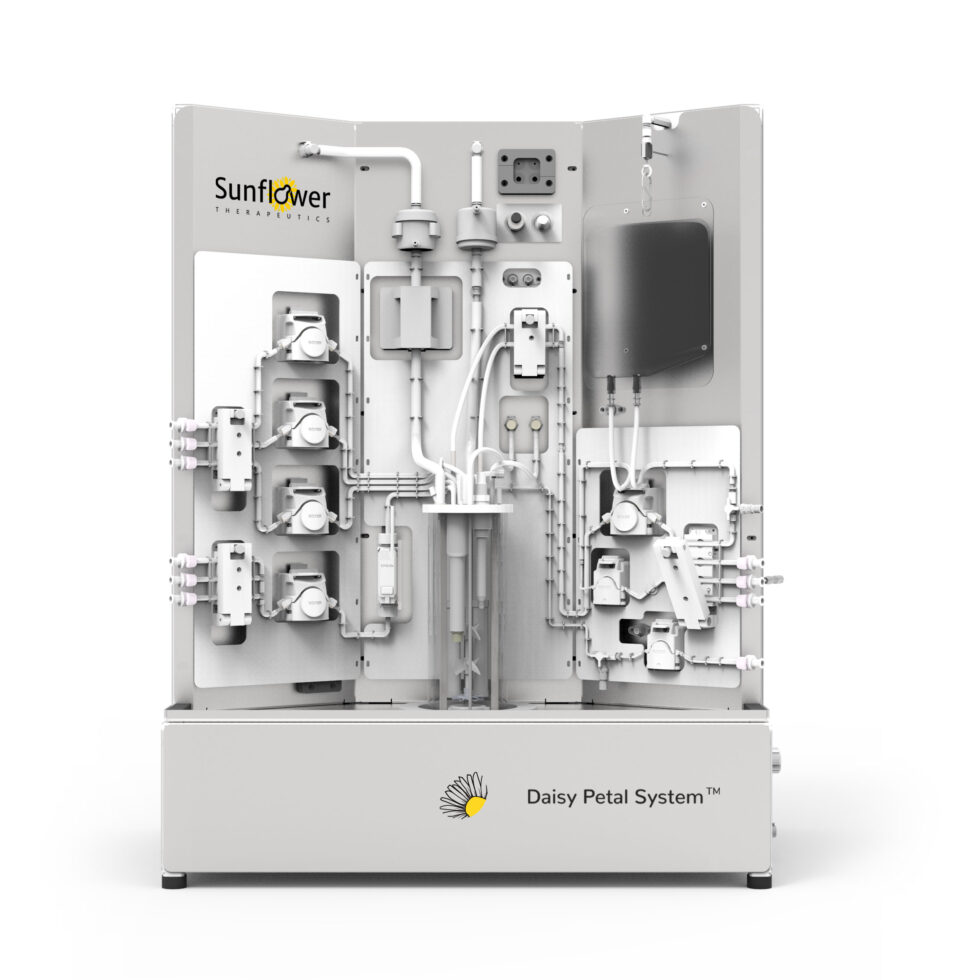Distributed manufacturing is among the hottest trends in biomanufacturing. Here, GEN talks to Laura Crowell, PhD, director of research & development at Sunflower Therapeutics about bringing protein manufacturing to the benchtop in low- and middle-income countries.
What are you building? And why are you building it?
Laura Crowell: We want to make protein manufacturing more accessible by making hardware and software simpler for people to interact with. Any scientist should be able to do protein manufacturing; it shouldn’t be a niche skill. We’ve fully built and tested two prototype systems for small-scale end-to-end manufacturing: the Daisy and the Dahlia. The Daisy is at benchtop scale with a 1-L bioreactor volume. The Dahlia is 15 L and at pilot scale.

With both systems, you input cells and a recipe, press start and, when you return a fortnight later, there’s a formulated drug substance in the collection fridge. Our goal is that any recombinant protein can be made in the system. We’ve done demonstrations making COVID-19 vaccine candidates, monoclonal antibodies, and granulocyte colony stimulating factor (G-CSF) proteins for cancer treatment.
We currently have our Daisy Petal™, the bioreactor part of our system, on early-access testing.
Is your system new and how does it benefit the industry?
Crowell: Our system isn’t completely new. A variety of companies are working to develop small-scale modular systems. Our focus is different because we’re focused on recombinant protein manufacturing using yeast as our host cell organism. Yeast grows much faster than the Chinese Hamster Ovary (CHO) cells most people are using, which means we can complete our processes faster. There are also fewer impurities to remove, allowing us to condense our processes into fewer steps and into a small automated system.
The goal is for people to have Dahlias all over the world, not in one single location, and for them to be able to scale out with multiple system in a single warehouse. We think there’s room for everyone in this new world—you could have systems from multiple manufacturers in a single warehouse making different products.
Everyone has a need for more biomanufacturing capacity, especially outside North America and Europe. We estimate that our system requires 5–10 times less capital expenditure and physical space than a traditional large-scale manufacturing plant and takes as few as two people to run.
Finally, where are you still working to improve your system?
Crowell: The big thing is that yeast can’t do post-translation modifications of human cells, such as glycosylation. The products we’ve made so far aren’t glycosylated [Sunflower told GEN that AltHost, a Massachusetts Institute of Technology (MIT)-led consortium, is currently working to engineer yeast with the ability for glycosylation].


